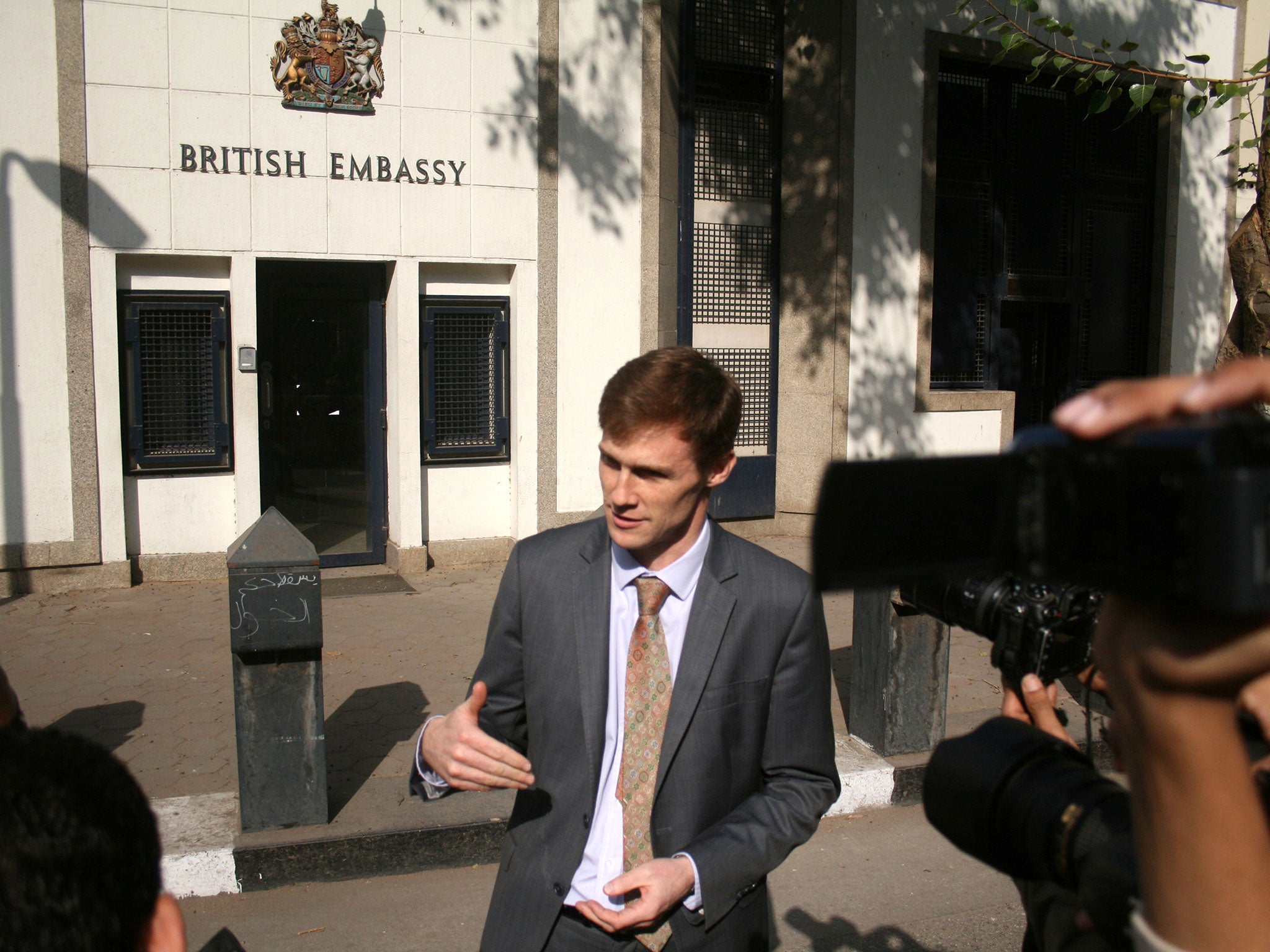British ambassador to Cairo called in to answer for comments on Egypt's jailed Al-Jazeera journalists
Egypt’s Foreign Ministry says John Casson's comments were 'an intervention in judicial rulings' and 'incompatible with diplomatic norms and practices'

Your support helps us to tell the story
From reproductive rights to climate change to Big Tech, The Independent is on the ground when the story is developing. Whether it's investigating the financials of Elon Musk's pro-Trump PAC or producing our latest documentary, 'The A Word', which shines a light on the American women fighting for reproductive rights, we know how important it is to parse out the facts from the messaging.
At such a critical moment in US history, we need reporters on the ground. Your donation allows us to keep sending journalists to speak to both sides of the story.
The Independent is trusted by Americans across the entire political spectrum. And unlike many other quality news outlets, we choose not to lock Americans out of our reporting and analysis with paywalls. We believe quality journalism should be available to everyone, paid for by those who can afford it.
Your support makes all the difference.Egypt’s Foreign Ministry summoned Britain’s ambassador in Cairo to protest at comments he made after a judge sentenced three Al Jazeera English journalists to prison for purportedly broadcasting “false news”.
The ministry said in a statement that John Casson’s comments were “an intervention in judicial rulings” and were “incompatible with diplomatic norms and practices”.
On Saturday, Egyptian Baher Mohammed, Australian Peter Greste and Canadian Mohammed Fahmy were sentenced to three years each in prison for alleged offences that included operating without licenses or press passes.
Mr Mohammed will also serve an extra six months with hard labour for possession of a bullet casing.
Three students were also imprisoned on the same charges, their only connection to Al Jazeera being that amateur video footage they filmed of events in Egypt were sold to the channel by a third-party agency in Cairo.
Speaking to television cameras in Arabic after the verdict, Mr Casson said he was “shocked and concerned by the sentences”, in a case that was of “profound interest to Egyptians because it has become a symbol of the basis for stability in the new Egypt”.
He added: “I am concerned that today’s ruling will undermine confidence in the basis of Egypt’s stability, both in Egypt and abroad.”
Ahmed Abu Zeid, spokesman for Egypt’s Ministry of Foreign Affairs, described the comments by Mr Casson as not befitting an ambassador.
The United States, the European Union, the United Nations and human-rights advocacy groups and press-freedom organisations sharply criticised the verdict, and so did several other foreign diplomats who had been present at the trial, but Mr Casson may have been the only one to speak in Arabic to domestic television stations. His comments were also posted on the British Embassy’s Facebook page and repeated on Twitter.
The group spent 411 days in prison and were released on bail in February this year to face a retrial, after Mr Greste was deported to Australia.
Mr Abu Zeid said officials felt the need to speak out because Mr Casson’s comments implied that the trial of three journalists was about freedom of speech, rather than the “specific violations” which he said had been committed.
“These comments undermine the international community’s confidence in Egypt,” he said.
A technical committee hired to re-examine evidence in the retrial found that the journalists had not fabricated footage harmful to Egypt’s national security.
Third-party observers say no evidence proved the charges, and critics described the case as politically motivated.
Human-rights lawyer Amal Clooney, who made a statement on Mr Fahmy’s behalf on Saturday, said she and Canadian Ambassador Troy Lulashnyk would meet Egyptian officials to press for a presidential pardon.
The British Embassy said Mr Casson met Hisham Seif al-Din, chief of staff to foreign minister Sameh Shoukry, yesterday at the latter’s request.
“Ambassador Casson explained the UK position on yesterday’s court ruling set out in statements in London and Cairo yesterday,” it said in a statement, adding that he would transmit the Egyptian side’s concerns to government ministers in London.
Additional reporting: Brian Rohan, AP
Join our commenting forum
Join thought-provoking conversations, follow other Independent readers and see their replies
Comments